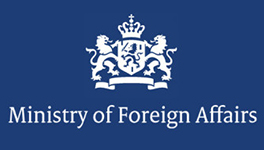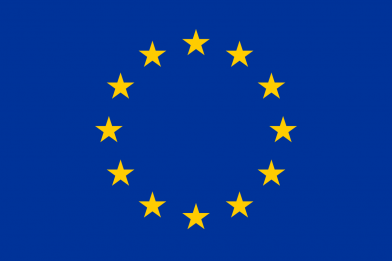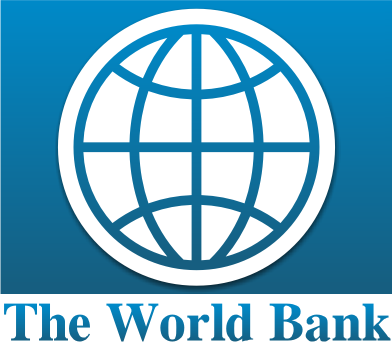Making a difference
Published :
Country: Mali
Period: November 2019 – March 2022
Client: Global Affairs Canada
Donor: Global Affairs Canada
Between 2019 and 2022, ACT for Performance evaluated the performance of Canadian cooperation in Mali in the following three priority sectors: Rural Development and Food Emergency (in 2019-2020), Health (in 2021), and Governance (in 2021-2022). With all of Canada’s development programme initiatives in Mali (2013-2018/2019) coming to an end in 2019-2020, the Department of Foreign Affairs, Trade and Development (DFAIT) conducted a planning phase for new bilateral programming. Given the scale of Canada’s investments in Mali, its active role in aid coordination, and the need for a strong policy dialogue with the technical and financial partners, the Department commissioned an external evaluation
of the performance of its Canadian sectoral programmes to provide input for future programming.
As an important partner, especially since the outbreak of the armed conflict that has been going on since 2012 in the North and Centre of the country, the MAECD finances Mali’s development up to $90 million per year, making the bilateral cooperation programme in Mali one of the most important and the third most important between the different donors in Mali.
- Published :
- Country : Madagascar
- Time period : June 2021 – February 2022
- Client : Gouvernement of Madagascar
- Donor : UNICEF
ACT for Performance, in consortium with its partner firm CoreAdvice, which specializes in organizational reviews, was commissioned by the Ministry of Population, Social Protection and the Promotion of Women in Madagascar, with support from UNICEF, to conduct an organizational and institutional review of the Ministry. The objective is to understand the bottlenecks, human resource organization, and capacity of the Ministry in order to make proposals for strengthening the social protection system in Madagascar.
The Government of Madagascar recently validated its National Social Protection Strategy (SNPS) for the period 2019-2023. Only 5.5% of the population is currently covered by social nets. The Government’s objective is the progressive scaling up of priority programs and the evolution towards an integrated social protection system for the country. As elsewhere, social protection has played a key role in the immediate response to the socio-economic crisis caused by COVID-19 in Madagascar. Indeed, 240,000 of the most vulnerable households benefited from two unconditional cash transfers in 2020 to support consumption during the containment and a longer-term response phase is being developed by the Cash Working Group, under the leadership of the Ministry.
- Publié le :
- Pays : Mozambique
- Période : Septembre 2021 – Mai 2021
- Client : UNICEF
- Donateur : UNICEF
En consortium avec UNIVERSALIA, une firme de consultants en gestion de Montréal, ACT for performance a participé à l’évaluation du programme de coopération entre UNICEF et le Gouvernement du Mozambique pour la période 2017-2020. ACT a fourni l’expertise en nutrition ainsi que son équipe basée au Mozambique, laquelle a visité les provinces de Zambezia et de Nampula au nord du pays. En raison de la pandémie, la collecte de données avec le gouvernement et les autres parties prenantes, comme les bailleurs de fonds au Mozambique, a été conduite à distance, sur les plateformes internet.
Les programmes-pays de l’UNICEF doivent être évalué au moins une fois tous les deux cycles de programme de pays afin de renforcer la responsabilité envers les parties prenantes nationales et d’éclairer l’élaboration des nouveaux documents de programme de pays. Le budget total du programme-pays de l’UNICEF s’élevait à 256 millions de dollars US.
Published :
Country : Mozambique
Period : August. 2019 – December. 2022
Client : Netherlands Embassy
Donor : Foreign Trade and Development Cooperation of The Netherlands
Mozambique and the Netherlands have a long history of cooperation in the water sector. The cooperation programmes on water supported by the Netherlands cover various sub-sectors among which Integrated Water Resources Management (IWRM). The goal of the IWRM programmes is to contribute to the sustainable social and economic development of Mozambique through the promotion of water safety and water security. ACT for Performance, in consortium with Prowater Consultores, provides technical assistance to the program management during three years, including support to organizational and fiduciary capacity of the implementing partners of the five IWRM projects and will facilitate cooperation between all the stakeholders involved.
Published :
Country : Cote d’Ivoire
Period : January 2019 – april 2022
Client : Global Affairs Canada
Donor : Global Affairs Canada
Hard hit by two destructive conflicts, in 2002 and in 2010-2011, Ivory Coast remains a fragile country that continues to consolidate towards peace and stability. Through its aid program, Canada’s objectives include strengthening stability and peace in Canada, promoting gender equality and strengthening the social and economic position of women and girls.
The mandate of the ACT for Performance advisor was to identify avenues of development for a potential Canadian programme in Côte d’Ivoire, and involved an exploratory mission to Abidjan to establish a directory of key actors and meet with technical and financial partners. Canada currently supports five West African countries: Senegal, Mali, Burkina Faso, Benin and Ghana. In total, Canada’s official development assistance (ODA) totalled $5.37 billion in 2017-2018
Published :
Country : Democratic Republic of Congo (DRC).
Period : April- June 2017 until Nov 2018 – Dec 2018
Client : United Nations Children’s Fund (UNICEF)
Donor : United Nations Children’s Fund (UNICEF)
Affected by several decades of security and humanitarian crises, the Democratic Republic of Congo (DRC) faces major challenges that seriously hamper efforts to reduce child mortality and improve maternal health (MDGs 4 and 5), despite the existence of the Health Development Plans (2011-2015, and 2016-2020) that have set themselves the objective of accelerating the achievement of the Millennium Development Goals (MDGs).
The country has developed major Health Development Plans (2011-2015 and 2016-2020) to accelerate the achievement of the Millennium Development Goals (MDGs). UNICEF contracted ACT for Performance to conduct the CAO 4&5 evaluability study in mid-2017, which had shown the relevance and feasibility of the evaluation. The evaluation of the program to reduce child mortality and improve maternal health (MDG 4&5) took place the following year, in 2018.
- Published :
- Country : Global
- Period : April – July 2018
- Client : UNITAID
- Donor : World Health Organization (WHO)
WHO recommends universal parasitological confirmation of all suspected malaria patients prior to treatment, which is dependent on the availability of high quality diagnosis at all levels of the health system. Rapid diagnostic tests (RDTs) are a key tool for routine malaria diagnosis. These portable, disposable tests are simple to use and do not require laboratory infrastructure. Since 2013, UNITAID has provided support to the Foundation for Innovative Diagnostics (FIND) to implement a project on sustainable global and national quality control of malaria rapid diagnostic tests (US$9.4 million grant) with the goal of establishing sustainable standards to ensure that quality malaria tests are increasingly used to support logical malaria treatment in endemic countries.
This project aims to develop improved and affordable quality standards and practices for malaria RDTs to support RDT quality control at two different points in the supply chain. The ACT for Performance team evaluated the project results against the initial objectives and targets, assessed the sustainability of the RDT quality process in the future, and provided realistic and pragmatic lessons learned and recommendations to introduce possible general and specific improvements.
UNITAID is a global health agency working to find innovative solutions to prevent, diagnose and treat diseases faster, more effectively and at lower cost in low and middle income countries
- Published :
- Country : Ethiopia
- Time period : March 2018 – September 2018
- Client : UNICEF
- Donor : European Union (EU)
For years, despite sustained economic growth rates, 80% of rural Ethiopians have lived below the poverty threshold. Children are the most affected, with an estimated 44% stunting rate. ACT assessed the results of the nutrition component of the EU-SHARE project funded by the European Union, which aims to strengthen Ethiopia’s capacity to cope with environmental and economic shocks that have threatened livelihoods over the past decade and resulted in significant livestock losses.
The project promotes sustainable agro-pastoral development while preserving water resources and soil fertility. Under the Nutrition component, UNICEF and its partner FAO implemented specific nutrition-sensitive actions in 17 Woredas in the Amhara, Oromia and SNPP regions, targeting adolescent girls, pregnant women and children under 5 years of age. ACT with JaRco Consulting conducted field visits to conduct progress surveys, a quantitative assessment (sampling and anthropometric measurements), and a qualitative assessment (document reviews, focus group discussions, and key informant interviews).
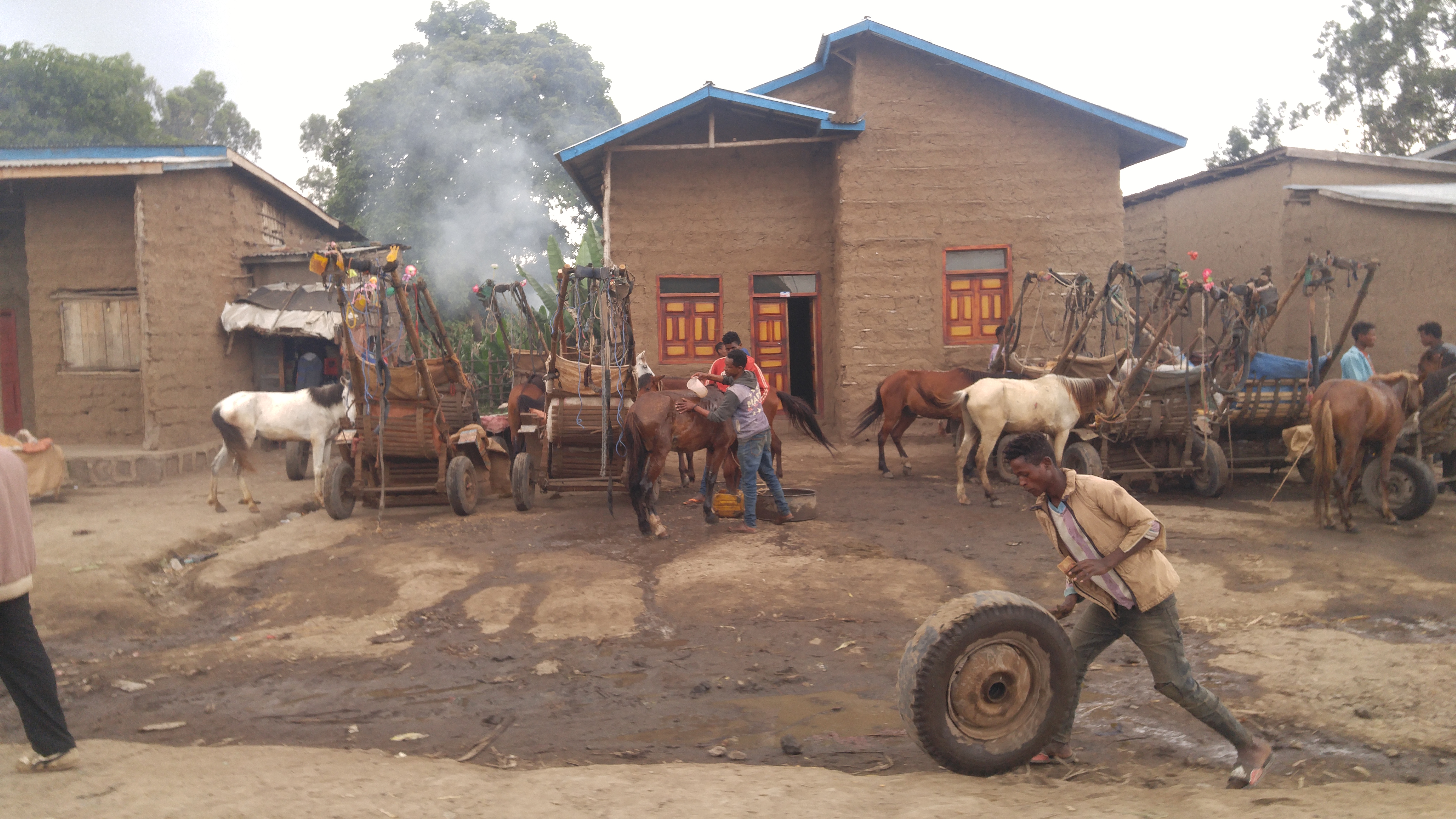

- Published :
- Country : Indonesia
- Time period : February 2018 – August 2018
- Client : UNICEF
UNICEF’s work in Indonesia in collaboration with its partners: the government, civil society, private sector and children themselves has been going on for more than 50 years. The 2016-2020 Country Cooperation Program between the Government of Indonesia and UNICEF has evolved significantly, in accordance with national development priorities and the country’s economic and social development. It defines cooperation in the areas of maternal and child health, nutrition, water sanitation, education, child protection, social policy, emergency preparedness and disaster risk reduction.
ACT for Performance and MDF Indonesia conducted a formative evaluation of UNICEF’s partnership strategies in 2018 and examined the contribution of these partnerships to the expected outcomes of this program. The objectives of the evaluation were to learn from UNICEF’s partnership approaches, understand the relevance, effectiveness, efficiency, sustainability, and equity of these approaches, and provide evidence-based recommendations for improvement.
- Published:
- Country : Democratic Republic of Congo (DRC)
- Time period : February 2018 – March 2019
- Client : The Health System Strengthening for Better Maternal and Child Health Project (PDSS)
- Donor : World Bank
The Health Systems Strengthening for Improved Maternal and Child Health (HSSP) Project was implemented in 11 provincial health districts in the Democratic Republic of Congo. The project is financially supported by the World Bank and the Health Results Innovation Trust Fund, as well as other partners such as USAID, GFF and the Global Fund. The main objective of the project is to improve the coverage and quality of maternal and child health services in targeted areas through performance-based financing. The overall objective of this mid-term impact evaluation is to provide recommendations to the World Bank and its implementing partners and to adjust the program based on changes required during implementation.
ACT for Performance and KIT Royal Tropical Institute conducted this study in 42 health zones in the provincial health districts of Kwango, Kwilu, and Mai-Ndombe in the DRC, including health center and household surveys, recruitment and training, data collection, and analysis, to estimate the impact of performance-based financing on health care utilization, quality, and outcomes in these health zones

- Published:
- Country:
- Democratic Republic of Congo
- Period:
- March 2016 – October 2016
- Client:
- Ministry of Civil Service; Civil Service Reform and Rejuvenation Project (PRRAP)
- Donor:
- World Bank
- Budget :
- US$ 487,750
The Civil Service Reform and Rejuvenation Project selected the consortium ACT for Performance – Groupe conseil Baastel to conduct a baseline survey among civil servants at state and provincial levels to establish a reference for performance, which permits to measure the impacts of the project. We also did a household survey to assess the level of citizen satisfaction with the quality of public services.
Seventy 70 surveyors were selected, trained and deployed in the field using tablets with questionnaires and surveyCTO software. So far, 1356 surveys have been carried out in the province of Kinshasa and 431 in the Kongo central province.
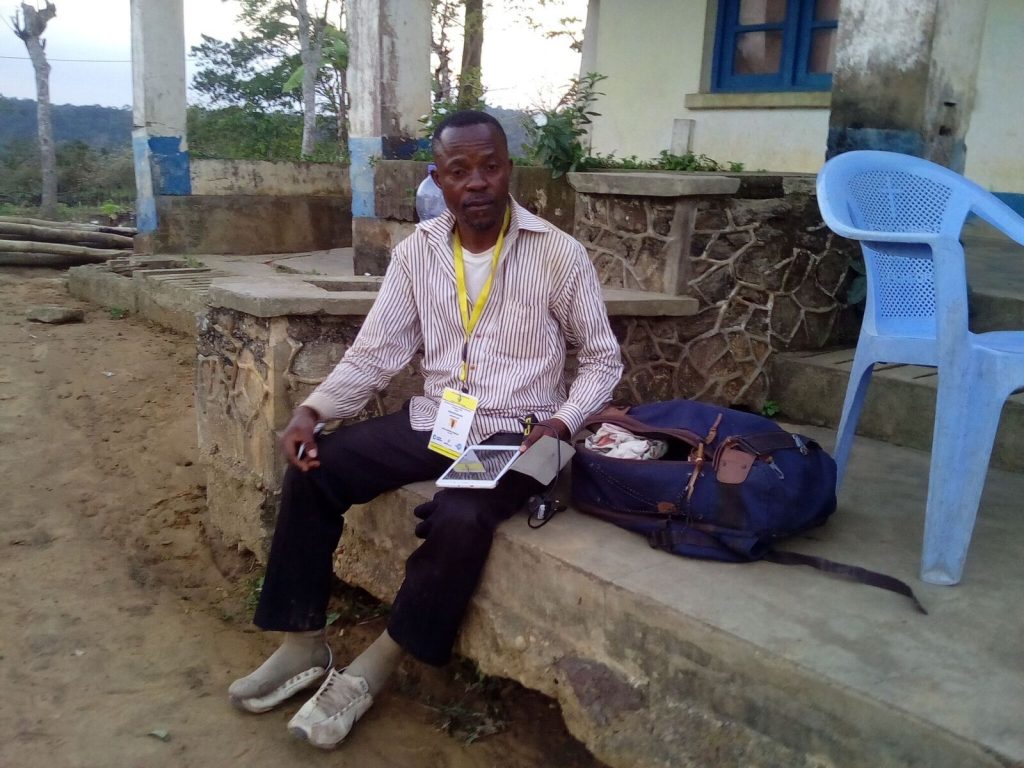
- Published:
- Country:
- Global, African countries
- Period:
- May – October 2017
- Client:
- UNAIDS and PEPFAR
- Donor:
- PEPFAR
- Budget:
- CDN$ 87,243
UNAIDS mandated ACT for Performance to execute the evaluation of Phase I of the Faith-Based Initiative. This initiative was funded by PEPFAR who commissioned UNAIDS to implement it. Aligned with the objective to eradicate HIV-AIDS by 2030, this initiative is focused on the important role of faith-based organizations as both advocates to reduce stigma and discrimination and to provide care. The purpose of the project is to bridge important information gaps on the work of faith-based organizations in that field, to initiate global networking, and knowledge-sharing. The evaluation provided specific recommendations to inform the second phase to take place in 2017-18.
- Published:
- Countries:
- Burundi, Ethiopia, Mozambique and Rwanda
- Période :
- March thru September 2017
- Client :
- UNICEF
- Donateur :
- Dutch Ministry of Foreign Affairs
- Budget :
- US$ 125,000
UNICEF selected ACT for Performance to evaluate a $US 38.9 million Nutrition project, implemented in four African countries and funded by the Dutch Ministry of Foreign Affairs.
This end-of-project evaluation not only informed the stakeholders on the results of the project but also on the next phase, reason why the evaluation was done a few months before the closure of the project. In addition the evaluation also produced information for country nutrition policies, strategies, and programming. The findings, conclusions and recommendations of the evaluation were presented, discussed and validated at a workshop in Addis Ababa in July 2017.
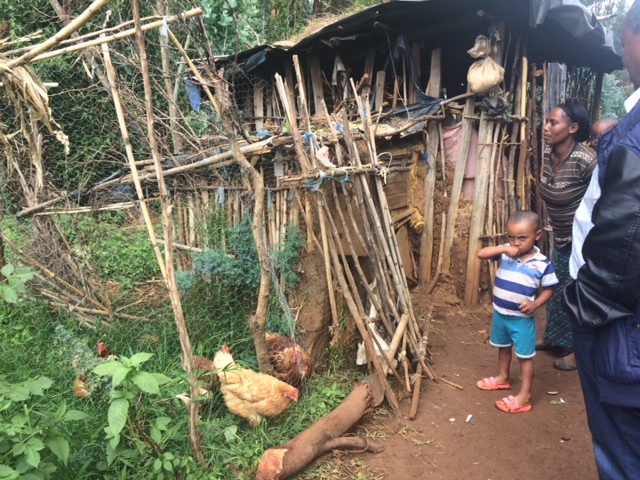
- Published:
- Country:
- Democratic Republic of Congo
- Period:
- April – September 2017
- Client:
- UNICEF and Ministry of Public Health
- Donor:
- UNICEF
- Budget:
- US$ 75,446
UNICEF mandated ACT for Performance to execute an Evaluability study of the MDG 4 & 5 Acceleration Framework in the Provincial Health Divisions of Southern Ubangi, Kwilu, Kwango, and Congo central of the Democratic Republic of Congo (DRC). We proposed realistic and feasible options for conducting an evaluation of the MDG 4 & 5 Acceleration Framework, and suggested a methodology and key questions to which the evaluation should respond in order to understand the value of the MDG Acceleration Framework approach, and given the constraints observed in its implementation related to the complex field operations. We also identified the expertise, efforts and budget needed for carrying out an evaluation.
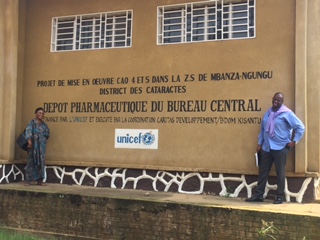
- Publié le :
- Country : Bangladesh, Bhutan, Democratic People’s Republic of Korea, India, Maldives, Myanmar, Nepal, Sri Lanka, Thailand, and Timor-Leste
- Period : August 2017 – April 2018
- Client : WHO Regional Office for South-East Asia
- Donor : WHO
The WHO Regional Office for South-East Asia (SEARO) is actively assisting eleven (11) member states in the region to implement the provisions stated in the WHO Framework Convention on Tobacco Control (FCTC) that was adopted in 2003 and came into force in 2005. Apart from Indonesia, ten out of eleven countries in the region have endorsed the convention i.e. Bangladesh, Bhutan, Democratic People’s Republic of Korea, India, Maldives, Myanmar, Nepal, Sri Lanka, Thailand, and Timor-Leste. The MPOWER technical package was introduced in 2008 to achieve the objectives of the FCTC and comprises six implementing proven measures to reduce demand for tobacco products, such as protecting people from tobacco smoke; enforce bans on tobacco advertising, promotion, and sponsorships; and raise taxes on tobacco.
Implementation and compliance of MPOWER have been regularly evaluated in Global Tobacco Control Reports and official reports from the FCTC to the Conference of the Parties. The current evaluation goes beyond these evaluations and provides important feedback for assessing the impact of FCTC implementation in the SEAR Member States after more than a decade of implementation of the treaty and the role of support provided by WHO to assist the countries in their tobacco control efforts to achieve the global, regional and national targets.
ACT for Performance already worked with the WHO in another multi-country evaluation, in the field of nutrition (11 Sub-Saharan African countries).
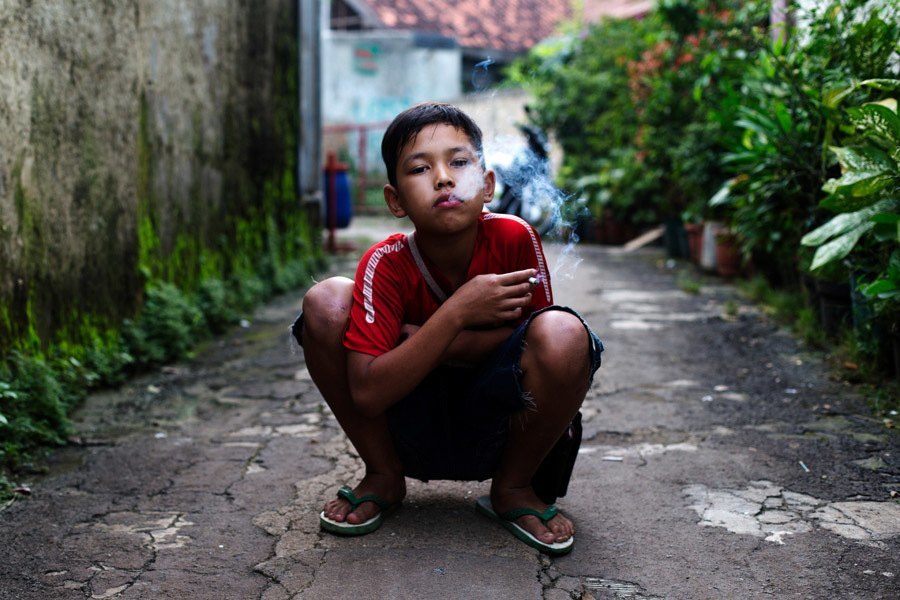
- Posted on:
- Country:
- Democratic Republic of Congo
- Period:
- May 2016 – January 2017
- Client:
- National Secretariat for Capacity Strengthening (SENAREC)
- Ministry of Planning
- Donor:
- World Bank
- Budget:
- US$ 125,000
- The National Secretariat for Capacity strengthening (SENAREC) selected ACT for Performance to lead, support and facilitate the development of the second National Capacity Strengthening Plan (PRONAREC 2017 – 2021). The new plan prioritizes eight fields of action, based on an evaluation of the implementation of the first plan (PRONAREC 2011 – 2016) and an assessment of the of the current capacity gaps, in the light of an on-going decentralization and a modernization of the State. The assignment comprised an extensive document review, three field missions, during which many stakeholders were interviewed and a sample of four provinces were visited, and two validation workshops.
Countries:
Jordan, Lebanon
Period:
August – October 2015
January – February 2017 (update)
Client:
UNDP Sub-regional Response Facility, Amman
Donor:
United Nations Development Program
Budget:
US$ 100,000
ACT for Performance was requested by the UNDP Sub-regional Response Facility in Amman, Jordan to do a study of the financial flows and the effectiveness of aid into Iraq, Jordan, Lebanon, Turkey, Egypt; five countries affected by the Syria refugee crisis. The study was based on a review of documents, visits to Jordan and Lebanon, where many stakeholders were interviewed, and a short survey. Our team gathered and analyzed financial data over the last five years, looked into aid modalities, evaluated the effectiveness of the humanitarian response, and the quality of coordination mechanism, and provided recommendations to harmonize short term humanitarian needs and long-term development needs (increasing the resilience of these countries). The study was updated in January and February 2017, on the basis of new datasets.
- Posted on:
- Country:
- Democratic Republic of Congo
- Period:
- February - July 2016
- Clients:
-
- General Directorate of Administrative and State Revenues (DGRAD), Ministry of Finances;
- Institutional support project Statistics and Public Finances (PAI-STATFIN)
- Donor:
- African Development Bank
- Budget:
- US$ 195,000
ACT for Performance was mandated by PAI-STATFIN to develop a training program for DGRAD on value-chain and transfer pricing in the mining sector. Analysis was based on a thorough review of the current value-chain and on an international benchmarking, and included ideas to improve Government revenues produced by the sector. Trainings were delivered multiple times.
- Posted on:
- Country:
- Mozambique
- Period:
- May – August 2016
- Clients:
-
- Embassy of the Kingdom of the Netherlands;
- Ministry of Public Works, Housing, and Water resources
- Donor:
- Netherlands Enterprise Agency
- Budget:
- US$ 89,000
ACT for Performance was mandated by the Netherlands Enterprise Agency to review the fifth phase of the water sector support program, funded by the Dutch Embassy in Maputo. A value-for-money study to assess the effectiveness and efficiency of the program formed an important part of the study, which also focused on the strengths and weaknesses of the water directorate and other institutions in the sector, and on the financing modality that uses country financial management and procurement systems. Based on its analysis and taking into account the comprehensive dialogue between the government and its development partner, the team proposed a restructuring of the program.
- Posted on:
- Country:
- Senegal
- Period:
- March – June 2016
- Clients:
-
- Project Support Unit of the Canadian Embassy in Dakar ; UNDP office in Dakar
- Working Group on Monitoring and Evaluation of Public policies (Presidency, Prime Minister’s Office, Ministry of Finance)
- Project Support Unit of the Canadian Embassy in Dakar ; UNDP office in Dakar
- Donor:
- Global Affairs Canada
- Budget:
- CA$ 100,000
ACT for Performance was mandated by the clients to assess the relevance, effectiveness and efficiency of existing, and sometime overlapping mechanisms in Senegal to evaluate public policies, and, in particular, the Emerging Senegal Plan. The team examined the mechanisms in various sectors, including an assessment of the indicators, tools utilized, data collection methods, actors involved, and reports produced. The team also analyzed the level of coordination and harmonization between the various mechanisms, and assessed the strengths and weakness of the organizations involved, using the SWOT model. Recommendations were presented to improve systems alignment and harmonization.
- Posted on:
- Country:
- Democratic Republic of Congo
- Period:
- September 2015 - April 2016
- Clients:
-
- National Nutrition Program, Ministry of Health (PRONANUT);
- UNICEF-Kinshasa
- Donor:
- UNICEF
- Budget:
- US$ 173,000
UNICEF mandated ACT for Performance to facilitate a participatory planning process to develop the National Multisectoral Nutrition Strategy for DRC, including an operational plan and a detailed cost estimate. After an extensive document reviews and an international benchmarking study, our team had meetings with all stakeholders, organized strategic planning and operationalization workshops and developed a financing model to estimate into detail the implementation costs. Relevant stakeholders validated the proposed strategy at a National Forum.
- Posted on:
- Country:
- Sub-Saharan Africa
- Period:
- June - December 2015
- Clients:
- Department of Nutrition of Health and Development World Health Organization (WHO)
- Donor:
- Department of Foreign Affairs, Trade and International Development, Canada
- Budget:
- € 182,000
WHO mandated ACT for Performance to evaluate its Project “Accelerating Nutrition Improvements in Sub-Saharan Africa”, which was financed by Canada (18 million USD). Our team evaluated the relevance, results, effectiveness and efficiency of the project and formulated recommendations with regard to possible adjustments for the remainder of the project period and to improve overall project management.
- Posted on:
- Country:
- Democratic Republic of Congo
- Period:
- May - July 2015
- Clients:
- Ministry of Decentralization and Customary Affairs
- Donor:
- UNDP
- Budget:
- US$ 80,000
ACT for Performance has been mandated by UNDP to conduct a study to assess the costs induced by the decentralization of competencies from the central government to local governments in the Equateur, Eastern Kasai and North Kivu Provinces. In addition to the cost-estimation, the team was asked to propose a progressive approach following priorities in the transfer of skills and resources, and also to identify and document the commitments and actions taken.
- Publié le :
- Country : Democratic Republic of Congo
- Period : May – June 2015
- Client : FEWS NET, Famine Early Warning System Network and Chemonics International Inc
- Donor : USAID
- Budget : US$ 120,000
ACT for Performance was asked by FEWS-Net and Chemonix to provide logistic and administrative support to the organization of workshops on food security in three provinces across the country (DRC).
- Publié le :
- Country : Democratic Republic of Congo
- Period : May 2014- August 2014
- Client : Governance capacity building project PRCG
- Donor : World Bank
- Budget : US$ 50,000
ACT for Performance conducted an organizational audit of the Revenue Agency of the Western Kasai Province, designed an institutional development plan, and developed recommendations to revitalize the Agency.
- Publié le :
- Country : Senegal
- Period : March – May 2014
- Client : MEDD, Delegation of European Union in Dakar, Royal Netherlands Embassy in Dakar
- Donor : European Development Fund (EDF) and Dutch Foreign Affairs Ministry
- Budget : € 100,000
ACT for Performance was mandated to conduct a joint mid-term review of two forms of program support being provided to the Senegalese Ministry of Environment and Sustainable Development: (1) Sector Budget Support provided by the European Union and (2) Support to twenty-two projects of the MEDD provided by the Netherlands. As part of the review, ACT for Performance was required to analyze the strengths and weaknesses of implementation and provide advice and recommendations for acceleration and improved performance. An evaluation of the quality of financial management and procurement within the Ministry and an assessment of level and quality of MEED performance towards achieving the set objectives in its Sector Strategy and Medium Term Expenditure Framework, as measured by core indicators, was part of the work. The team also advised MEED on institutional strengthening and the EU on certain indicators for its future multi-sector budget support Sustainable Agriculture and Food Security.
- Publié le :
- Country : Democratic Republic of Congo
- Period : January – June 2014
- Client : SENAREC, the National Secretariat for Capacity Strengthening, Ministry of Planning
- Donor : World Bank
- Budget : US$ 40,000
ACT for Performance was asked to elaborate the Project Execution Manual of the Public Sector Capacity Strengthening Program PRC-GAP. In addition to the execution manual, the team reviewed the existing financial administration and procurement manuals of the project and developed the training management manual for the eight training centres in the country, which deliver the major share of the training under the project.


